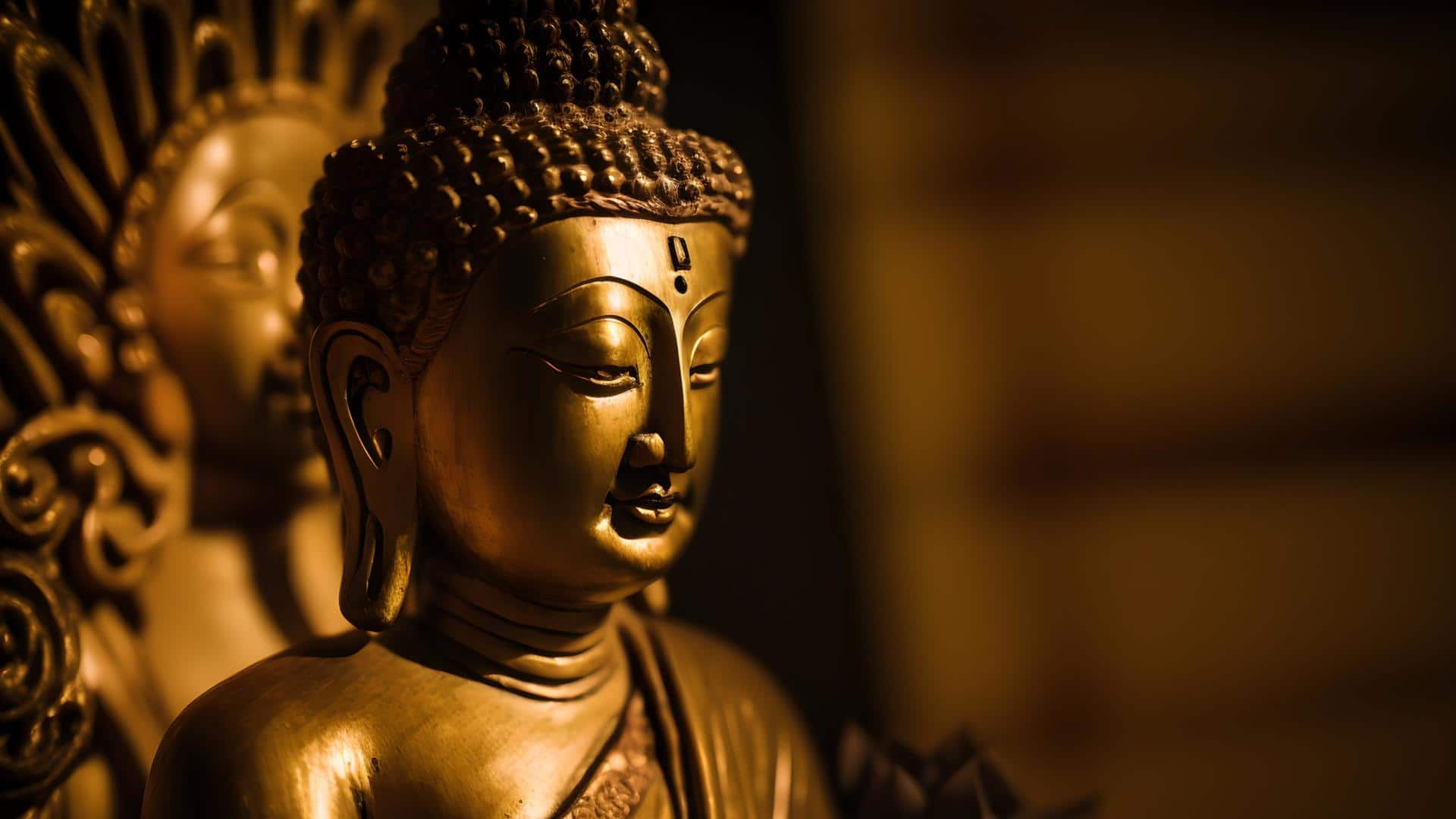
Buddha Purnima: Know everything about the biggest Buddhist festival
What's the story
Buddha Purnima is being celebrated on May 5 this year.
It is the biggest festival for the followers of Buddhism and is celebrated not only in India but also in countries including Nepal, China, Bangladesh, Bhutan, Indonesia, South Korea, Singapore, Mongolia, etc.
From its relevance and history to its significance and celebrations, here's all you need to know about this grand occasion.
Meaning
Buddh Purnima celebrates Gautam Buddha's birthday
Also known as Buddha Jayanti, this festival commemorates the birth of Prince Siddhartha Gautama, who was later known as Gautam Buddha.
He was the founder of Buddhism and was believed to be born in 563-483 BCE in Nepal.
The day falls on a full moon in the Buddhist calendar of Vaisakha, which is May 5 this year.
History
He was confined and only saw the world at 29
Before Lord Buddha was born, predictions were made that he will be a great ruler or monk in the future.
And so to safeguard the prince's life, his father King Suddhodana confined him in the palace.
He took his first step into the outside world at the age of 29 and saw an old man, a dead body, and a sick man.
Information
What happened next?
These three made the Lord realize how life is temporary. He left his materialistic life and spent six long years in a forest to learn yogic austerities. He also spent seven weeks under the Boddhi tree, reached a state of Nirvana, and later preached sermons.
Significance
The festival stands for peace, harmony, and non-violence
Buddha Purnima celebrates the transience of life, peace, harmony, and non-violence.
It also teaches how one should respect the gift of life, stay grateful, and approach women with more equality.
This is exactly why today many people across the world have turned Buddhist and don't worship a particular deity.
The day honors spirituality, philosophy, and the cycle of life and rebirth.
Celebrations
People water the Bodhi tree, do veneration, and practice meditation
Buddha Jayanti is an important festival for Buddhists and they celebrate it by indulging in a host of traditions.
Devotees water the Bodhi tree, visit monasteries and pilgrimage sites for veneration, and cook offerings including kheer which is then offered to the less fortunate.
They also practice meditation, do charity, and spread the message of compassion and tolerance.